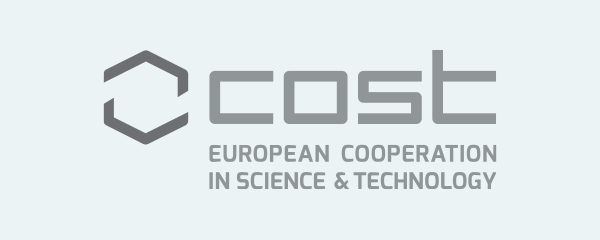
ORBIT – Religious Identity, Bullying and Wellbeing at School: A Transnational Collaboration
Project Partners/Funders
Fund Award Amount
C. €600,000
Project News
Project Overview
In recent years wellbeing both as a concept and lived reality has gained increasing prominence in international education literature (Norwich et al., 2022). In this field, there is an increasing number of studies that connect human wellbeing and religion (Hannikainen, 2021). Religious and spiritual involvement seems to benefit the lives of individuals and communities through empowering self-esteem, inner strength, and a sense of belonging to a wider community (Kor et al., 2019; Lim & Putnam, 2010; Neugebauer et al., 2020). Additionally, many studies show that religious people tend to live longer, get sick less often and are better able to cope with stress (PEW, 2019, 25).
Even though religious identity is often cited as a cause of division, it can also be argued that most religious beliefs teach the importance of tolerance towards the practice, culture and lifestyle of other religious convictions and expressions, and can help to develop in children a tolerance and understanding towards the beliefs of others, and as such promote inclusion and wellbeing in European societies. Furthermore, emerging evidence shows that a specific aspect of spirituality called “spiritual flourishing” contributes to prosocial behaviour, helping students develop meaningful relationships and altruism, thus contrasting bullying (Chapman et al., 2021; Kor et al., 2019; Neugebauer et al., 2020).
However, religious identity can also be stigmatised, due to prejudice and to narratives in mainstream media that represent those of a religious identity as naïve, uncaring, and/or fanatical (Ryan and Gardner, 2018). Consistent research on bullying (offline and online) has shown that those who are perceived to be different to the majority of people because of their religious identity are more prone to be targets of bullying (Sanmartin Feijoo et al., 2023). This might lead to students concealing their religious identity not to be bullied; however, when students feel forced to conceal or deny their religious identity, both personal and communal (school community) wellbeing are compromised (Ipgrave, 2012). In short, it seems that when one’s religious identity is accepted, it contributes to personal wellbeing and social inclusion, whereas when it is undermined this leads to illbeing, harassment, and segregation.
In this context, schools can provide a crucial safe platform for inclusion and citizenship, influencing individuals psychological and sociocultural adaptation, personal well-being and academic achievement in the short term, while long term directly affecting social status, professional achievement, economic earning power and their understanding of cultural morality and societal principals. Conversely, when inclusivity is not approached well, there can be breeding grounds for discontent and alienation.
This COST Action delves into the correlation between religious identity, bullying, and wellbeing, and the implications for students, school communities, and European societies. lt provides a conduit for researchers, policy makers, and educators to consider the relationship between religious identity, wellbeing and inclusion. Through the objectives of each Working Group, the members of the Action can examine how religious identity contributes to the wellbeing of individuals, family, communities, and societies.
Project Goals
The main coordination objective of this action is to share, evaluate and foster research in the association between religion and wellbeing and in the reduction of religious harassment and bullying in the school environment, to develop updated measures of school climate, and practitioner-based resources, techniques and tools, that can help create a sustainable supportive and inclusive environment at all levels of the school community, including students and adults. The action incorporates the following objectives:
- The establishment of a collaborative network to foster, share and support a knowledge base and research advances on (i) how religious identity contributes to the wellbeing of individuals, families, communities, and societies (ii) the application and assessment of intervention approaches to improve inclusion of religious identities and reduce religious-based bullying/violence, through the cross-collaboration and integration of Working Groups:
- WG1: Religious Identity and School Climate Assessment/Measurement Development
- WG2: Religious -Based Bullying and Diversity in Schools: Policies and Practices
- WG3: Religious Education, Spirituality, Wellbeing, and Inclusion
- WG4: Religious-Based Bullying, Wellbeing, School Design and Safety
- WG5: Social Media, AI, and Metaverse – Impact on Religion and Wellbeing at School
- Support researchers and practitioners in assessing and evaluating existing practices and methodologies in each area of investigation and across all challenge areas with a firm focus on religious inclusion, the connection between religion and wellbeing, and religious bullying reduction, to assess benefits, and identify new holistic practical and policy approaches.
- Co-ordinate data from across each area to assist in the development of scientific cross-validated instruments with back translations for the measurement of school climate to help school communities set goals and priorities for the inclusion of religious identities and the prevention of religious bullying, choose programmatic interventions and identify areas where students, staff, and parents view climate in similar or dissimilar ways.
- The collaborative collation and assessment of a handbook of interventions across all working groups for practical use by school communities and local authorities to work in tandem with new school climate safety measures.
- Encourage, strengthen and develop the network of researchers, academics and practitioners in the areas of education, anti-bullying, religious identity, wellbeing and inclusion.
